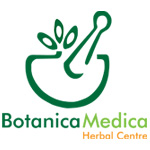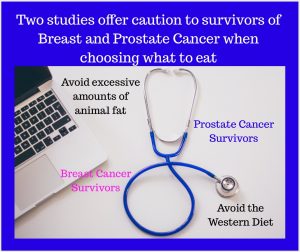Impact of Dietary Patterns and the Main Food Groups on Mortality and Recurrence in Cancer Survivors
TAKE-HOME MESSAGE
* The authors of this meta-analysis evaluated the association between dietary patterns and outcomes among survivors of common cancers with a 10-year survival rate of ≥50%. Among breast cancer survivors, reduction in dietary fat decreased the risk of recurrence and adherence to a high-quality and prudent diet reduced the risk of mortality from other causes. Breast cancer survivors who adhered to a Western diet both before and after diagnosis had an increased risk of mortality.
* There is little evidence to prove that dietary habits impact outcomes among cancer survivors. However, a low-fat diet and a high-quality and prudent diet may be associated with improved outcomes among breast cancer survivors, while the Western diet appears to be detrimental.
Low fat diets may reduce the risk of recurrence of hormone sensitive cancers
Two studies published this month offer caution to survivors of breast and prostate cancer when choosing what to eat. Eating a low-fat diet appears to be beneficial in these hormone-sensitive cancers at preventing a recurrence. The exact reason is unknown but suggested hypotheses include the following:
* Saturated fat is rich in arachidonic acid, which is the precursor of the inflammatory cascade. Cancer growth and recurrence is promoted with systemic inflammation (steroids are used to prevent arachidonic acid from being mobilized from the cell membrane).
* Fat is made of cholesterol, which is the building block for hormones. Eating more of these foods may increase hormones indirectly by increasing cholesterol levels that may increase the risk of breast and prostate cancer.
* Most mammals store toxins in subcutaneous fat. Eating this fat from other animals increases the consumer’s toxic load. This is greatly increased through the consumption of red and processed meats.
* Milk and dairy products are rich in hormones—some natural (estrogen, prolactin) and some that were put there (insulin-like growth factor 1; IGF-1). Estrogens are lipophilic and are found in higher concentrations in whole-fat milk. In contrast, prolactin and IGF-1 are more lipophobic and are found in higher concentrations in low-fat milk.
Nutrition studies are challenging to interpret due to the many confounders, errors in recall, and the lack of knowledge of food nutrient interactions for benefit or harm. That being said, with the best evidence we have to date, He will encourage his patients who have had breast or prostate cancer to avoid excessive amounts of animal fat and to avoid the “Western diet,” which is defined in this study as one that is low in fruits and vegetables. Risky high–animal fat diets include the “paleo diet” and “low-carb” or “ketogenic” diets, which are often used for weight loss.
At Botanica Medica our Naturopaths are well aware of the importance of a good diet and the effect it can have on your life both physically and mentally. They come across lots of interesting studies like this and are always updating their knowledge. If you have had Prostate or breast cancer and would like the confusion of what to eat or not to eat made simple, make an appointment with one of our Naturopaths by calling Botanica Medica on 8271-1827 today. They are only to happy to share the knowledge they have gained through their studies and patient outcomes, and get you feeling better. Botanica Medica is located at 97 Glen Osmond Road, Eastwood and appointments are available Monday to Saturday including some after hours.
Published in Primary Care
Journal Scan / Research · March 01, 2018
Written by David Rakel MD, FAAFP
refrences: Sylvia H J Jochems, Frits H M Van Osch, Richard T Bryan, Anke Wesselius, Frederik J van Schooten, Kar Keung Cheng, Maurice P Zeegers
BMJ Open
Graphics created in Canva


Recent Comments